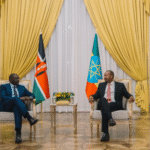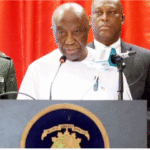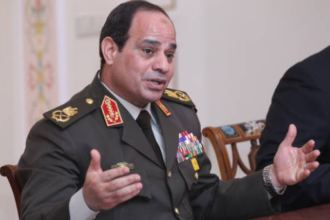By Jeffrey Stein
Kuala Lumpur, Malaysia – A swift diplomatic intervention led by Malaysia has brought an “immediate and unconditional” end to five days of escalating border clashes between Thailand and Cambodia, offering a potential blueprint for conflict resolution to regional blocs worldwide, including the African Union and ECOWAS.
Malaysian Prime Minister Anwar Ibrahim announced the breakthrough on Monday, following a crucial meeting he hosted between Thailand’s acting Prime Minister Phumtham Wechayachai and Cambodian Prime Minister Hun Manet. The leaders met in Kuala Lumpur for ceasefire negotiations as the border conflict, which had claimed lives and displaced hundreds of thousands, reached a critical point.
Before the meeting, Prime Minister Ibrahim had emphasized the paramount importance of an immediate ceasefire, stating that both sides would present their conditions for a lasting peace.
The conflict, which erupted last Thursday after a landmine explosion wounded five Thai soldiers, quickly escalated, claiming at least 35 lives and displacing over 260,000 people on both sides of the border. Both nations had blamed each other for initiating the hostilities, leading to a significant diplomatic fallout, including the recall of their respective ambassadors. Thailand also declared martial law in its border districts.
Despite a provisional ceasefire attempt over the weekend, trust remained a significant hurdle. Thai acting Prime Minister Phumtham had expressed deep skepticism prior to the Kuala Lumpur talks, citing Cambodia’s continued airstrikes. “We have been informed that we don’t have trust in Cambodia. All they have done reflect that they are not sincere in solving this problem. So, they have to show the detail how they will do to prove their sincerity,” Phumtham told reporters in Bangkok, adding that the US and China would attend the talks as observers.
The urgent negotiations came amidst mounting international pressure. US President Donald Trump had warned both nations of halting trade deals if hostilities continued, while foreign ministers of the Association of Southeast Asian Nations (ASEAN) urged de-escalation, concerned by the rising death toll, mass displacement, and destruction of public properties. The clashes represented a rare instance of open military confrontation inside the 10-nation regional bloc, which prides itself on principles of non-aggression, peaceful dialogue, and economic cooperation.
The human toll has been immense, with over 139,000 people in Thailand and 79,000 in Cambodia driven from their homes, desperate to return as instability gripped the border regions.
Lessons for African Regional Blocs
The rapid and decisive regional intervention by Malaysia, a fellow ASEAN member, to mediate an immediate ceasefire within just five days of escalating hostilities, offers a powerful case study for conflict resolution. This model of proactive diplomacy and regional solidarity, particularly when compared to protracted conflicts in other parts of the world, presents valuable lessons for bodies like the African Union (AU), the Economic Community of West African States (ECOWAS), and other regional organizations on the African continent.
It underscores the potential for internal regional mechanisms to swiftly de-escalate tensions and prevent wider humanitarian crises, demonstrating that immediate engagement and the leverage of regional relationships can avert prolonged suffering and broader destabilization. The success in Southeast Asia highlights the efficacy of timely regional leadership in upholding peace and stability among member states.









